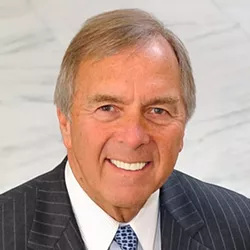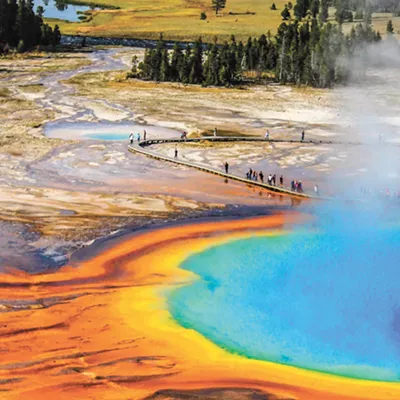The recent death of the oppressive Fidel Castro may end an era — one of brutality, restriction of freedom and anti-Americanism. America should now adopt policies that will encourage freedom in Cuba.
United States-Cuba relations have been rocky since 1959, the year of Castro's ascension to power in his small Caribbean nation, then with a population of nearly 7 million. When I dined with him in Havana nearly 20 years ago, having sponsored a law opening Cuba to American products, Fidel was aged but not feeble, still a revolutionary at heart, expecting his guests to marvel at his stamina and intellectual recall. He probably took an afternoon nap in order to appear vigorous from 9:30 pm until dinner ended at 2:15 am.
I was there after Eastern Washington pea farmers brought it to my attention that Canadians could sell peas to Cuba, but they could not. Working within existing American policy, we were there to explore getting more of our products to the Cuban people.
Though I imagined that Castro understood English, he spoke only through a female interpreter who appeared to translate his comments the way he wanted them understood, not the way he stated them in Spanish. Seeking to regale his three Congressional guests with facts and statistics, his delivery was more like filibustering; where if he talked, no one else could. It was only through interruption that one could pose a question or make a point.
Castro was still angry with the Soviets after the USSR stopped his $200-million-per-year support payments in the late 1990s. He dismissed my suggestion that to open Cuba to American capitalism, he could allow U.S. colleges to hold spring breaks in Cuba. He reiterated his outspoken policy that Cuba should be treated the same as other nations, as far as U.S. policy went, rejecting the American policy that allowed for cash-only sales of American products to his country. Cuba was encouraged to "buy" American goods, essentially walking through the door that American policy had left open. Saying "No" because he had "said too much" to the world at large about the sorry state of U.S.-Cuba relations, Castro wanted Cuba to be treated as a first-class nation in the world. We politely told him that no Congressional policies would be forthcoming that loosened the relationship more without affirmative actions by his country.
Two months later, a devastating hurricane struck Cuba. The U.S. offered free aid. Cuba refused the offer, saying instead that it would "buy" U.S. products. It was a pretext to allow Castro to save face, since the U.S. had not changed its cash-only policies as Castro had demanded. Since that time, Cuba has bought more than $2 billion of U.S. products for cash, including our crops.
Following the legislative easing of U.S.-Cuba relations, the George W. Bush administration took a harder line against Cuba and Castro, failing to recognize that most of today's 11 million Cubans are not communists, and many long to be free. Under Bush, American travel to Cuba was limited. U.S. Department of Treasury and Commerce regulations became more restrictive. Outreach to Cuba fell off, though cooperation between anti-drug officials of both countries continued, since Castro didn't want Cuba to be economically drug-dependent.
When President Obama reached out to Cuba to normalize relations, the relationship began to thaw. While Castro was an avowed communist, anti-capitalist and oppressive force for more than 50 years, it's no wonder that American presidents have been reluctant to normalize U.S.-Cuba relations. Anti-Castro Floridians have led political opposition, with American presidents and Congressional representatives and senators in tow. Florida members of Congress insisted on not extending American credit to Cuba, requiring the cash-only sales position from Americans to Cuba.
Cuban-American foreign policy under the new Trump Administration isn't yet determined. Hopefully, Trump will seek to attract Cuba's willing citizens 90 miles off American shores to freedom, thereby signaling rejection of the oppressive society that Castro championed. Florida's Cuban population, now accustomed to American freedom, should lower its resistance to embracing Cubans, with the lure of a free society, rejecting the communist-inspired, anti-American rhetoric of Raul Castro, Fidel's successor, who may turn out to be less oppressive than his brother. The U.S. should continue reaching out to Cubans with a message of liberating them from the society that has historically restricted and punished them in areas of health care, baseball and the arts.
I would expect Cubans to embrace any American outreach. If presented properly, they'll soon realize that Americans are not as evil as Fidel told them for decades. Just ask the Cubans who have emigrated here and become some of America's most productive citizens. ♦





















